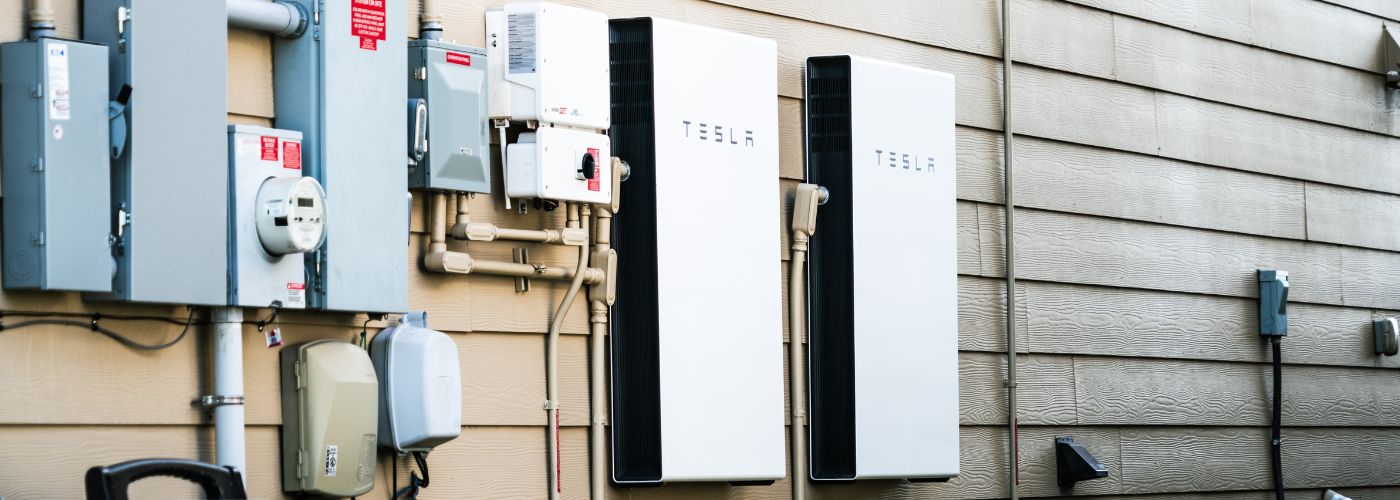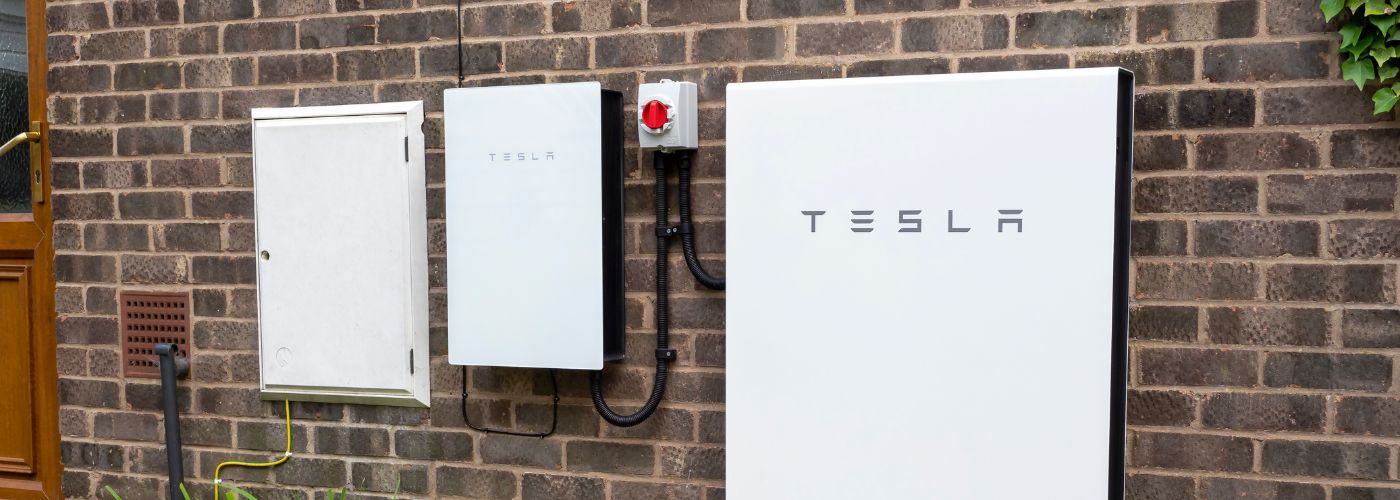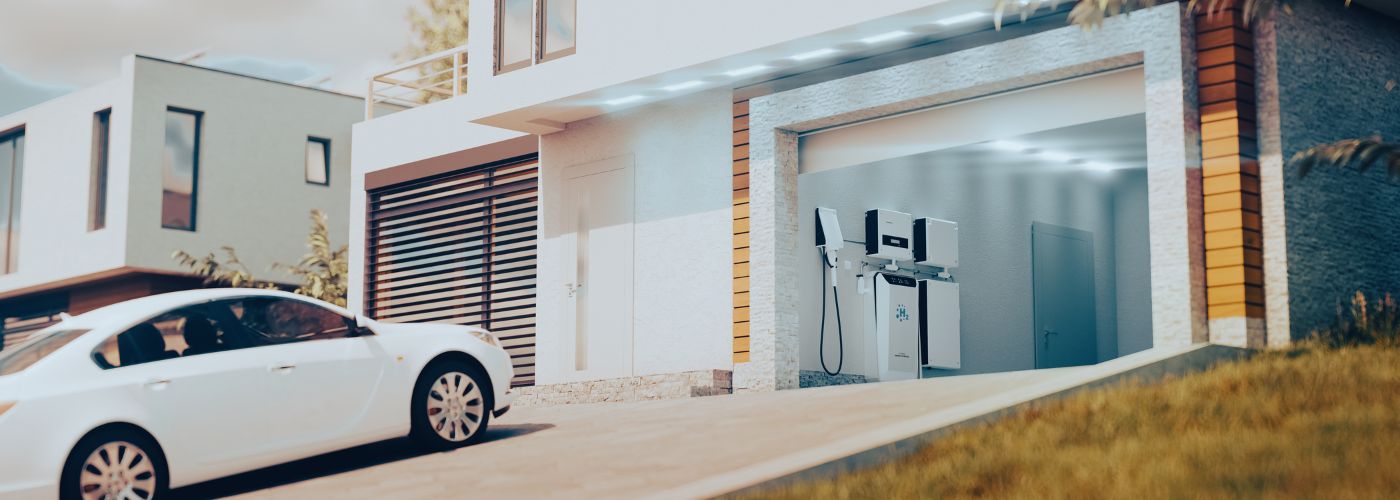Solar panels are the biggest thing to help homeowners save money on their monthly energy bills and lower their carbon emissions. However, one thing that’s just as important to have in your home is a solar battery. What does this battery do? We’ll be breaking down everything you need to know about solar battery storage.
How Do Solar Batteries Work

Solar battery installations are becoming increasingly popular as a way to store energy and power homes and businesses. But how do they work?
Solar batteries work by converting sunlight into electrical energy. This process is called photovoltaic (PV) conversion. Solar panels are made up of PV cells, which are made of two layers of semiconductor material. When sunlight hits the PV cell, it causes an electric field to be created between the two layers. This field forces electrons to flow from one layer to the other, creating an electric current. Electrons are subatomic particles that are negatively charged and found in all atoms. This current can then be used to power homes and businesses.
Solar batteries are a clean and renewable source of energy, and are becoming more affordable as technology improves. With solar batteries, we can move towards a more sustainable future.
How Long Do Solar Batteries Last?

Solar batteries have many applications, including powering homes and businesses, providing backup power, and charging electric vehicles. Solar batteries typically have a lifespan of 10 to 20 years, but their performance may degrade over time.
Solar batteries are designed to withstand the wear and tear of daily use and provide a consistent, reliable source of power. However, like all batteries, solar batteries will eventually need to be replaced.
How can you prolong the life of your solar battery? There are several things you can do to prolong the life of your solar battery: avoid deep discharge cycles, keep the battery clean and free of debris, and charge the battery regularly.
Can You Charge Solar Batteries Without A Charge Controller?

Solar batteries are becoming increasingly popular as a means of powering homes and businesses. However, there is some debate about whether or not a charge controller is necessary to charge the batteries. Here, we will take a look at both sides of the argument to see if you can charge solar batteries without a charge controller.
Those who argue that you do not need a charge controller say that the battery will automatically stop charging when it is full. They point out that this is the same way that cell phone and laptop batteries work. However, others say that this could lead to overcharging and damage to the solar battery.
Without a charge controller, there is also the risk of discharge during cloudy weather or at night. This could lead to power outages for those who rely on solar power. A charge controller would prevent this by regulating the flow of electricity into the battery.
Be sure to speak with a solar panel installation company and see if the solar battery charger is needed for your property.
Are Solar Batteries Worth It?
As the world progresses, more and more people are looking for ways to be eco-friendly. Many people have turned to solar energy in order to help save the environment. Solar batteries are a newer technology that allows people to store solar energy so that it can be used later. The question is, are solar batteries worth it?
There are many benefits of solar batteries. One benefit is that they can help you save money on your electricity bill. Solar batteries can also help you be more independent from the grid. If there is a power outage, you will still have power if you have a solar battery. They also have a long lifespan, so you won’t have to replace them often.
Solar batteries do have some disadvantages. One disadvantage is that they can be expensive. Another disadvantage is that they require maintenance in order to work properly. However, local and federal governments offer incentives for homeowners and business owners to install solar panels and solar batteries.
